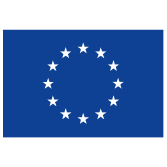The ERC has announced the awarding of its Consolidator Grants to 327 top researchers in Europe. The funding, worth a total of €655 million, will give researchers a chance to have a far-reaching impact on science and beyond. The grants fall under the ’Excellent Science’ pillar of Horizon 2020, the EU’s research and innovation programme.
 ICREA Prof at ICFO Dr. Darrick Chang, awarded for the project A New Spin on Quantum Atom-Light Interactions (NEWSPIN), which aims to establish that interference in light emission is in fact a much more powerful resource than the level that we currently exploit it within quantum optics. For quantum applications, the project aims to establish protocols with exponentially better error bounds than those currently known. Underlying this powerful paradigm shift will be the development of a quantum many-body theory of multiple scattering involving photons and atoms, which takes advantage of state-of-the-art tools from condensed matter physics. Beyond robust new routes toward applications, our theory will also reveal exotic new quantum phenomena and lead to new insights into fundamental questions in optics, such as the physical limits to how large the refractive index of optical material can be. In total, we anticipate that NEWSPIN could greatly enrich our understanding of atom-light interactions and their realm of possibilities.
ICREA Prof at ICFO Dr. Darrick Chang, awarded for the project A New Spin on Quantum Atom-Light Interactions (NEWSPIN), which aims to establish that interference in light emission is in fact a much more powerful resource than the level that we currently exploit it within quantum optics. For quantum applications, the project aims to establish protocols with exponentially better error bounds than those currently known. Underlying this powerful paradigm shift will be the development of a quantum many-body theory of multiple scattering involving photons and atoms, which takes advantage of state-of-the-art tools from condensed matter physics. Beyond robust new routes toward applications, our theory will also reveal exotic new quantum phenomena and lead to new insights into fundamental questions in optics, such as the physical limits to how large the refractive index of optical material can be. In total, we anticipate that NEWSPIN could greatly enrich our understanding of atom-light interactions and their realm of possibilities.
 ICFO Prof. Dr. Leticia Tarruell, awarded for the project Unconventional Superfluids in Quantum Gases with Competing Interactions (SuperComp) that aims to exploit the full potential of ultracold quantum gases with competing interactions to unlock the observation of unconventional superfluid phases that have until now defied experimental realization. To this end, SuperComp will explore three distinct mechanisms resulting in unconventional superfluid behaviour: quantum fluctuations, engineered dispersion relations, and interactions with non-zero orbital angular momentum. Exploiting combinations of bosonic and fermionic potassium atoms, SuperComp will realize novel types of ultradilute quantum liquids, supersolid-like gases and liquids, density-dependent artificial gauge fields, elastic multi-body interactions, and investigate a new approach towards the long-sought px+ipy topological superfluid phase of 2D Fermi gases. These experiments will deepen our understanding of the mechanisms responsible for unconventional superfluidity, and impact not only the field of quantum gases but also the much broader range of disciplines where unconventional superfluids or superconductors play a key role.
ICFO Prof. Dr. Leticia Tarruell, awarded for the project Unconventional Superfluids in Quantum Gases with Competing Interactions (SuperComp) that aims to exploit the full potential of ultracold quantum gases with competing interactions to unlock the observation of unconventional superfluid phases that have until now defied experimental realization. To this end, SuperComp will explore three distinct mechanisms resulting in unconventional superfluid behaviour: quantum fluctuations, engineered dispersion relations, and interactions with non-zero orbital angular momentum. Exploiting combinations of bosonic and fermionic potassium atoms, SuperComp will realize novel types of ultradilute quantum liquids, supersolid-like gases and liquids, density-dependent artificial gauge fields, elastic multi-body interactions, and investigate a new approach towards the long-sought px+ipy topological superfluid phase of 2D Fermi gases. These experiments will deepen our understanding of the mechanisms responsible for unconventional superfluidity, and impact not only the field of quantum gases but also the much broader range of disciplines where unconventional superfluids or superconductors play a key role.




